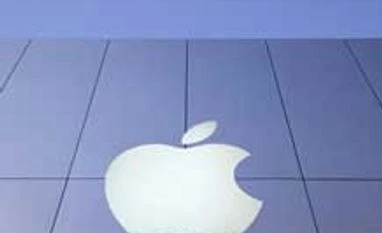Apple, Oracle and the other tech giants hoarding half a trillion dollars in cash have joined the ranks of the biggest buyers of debt, often snapping up as much as half of some bond issues, according to five people with knowledge of the transactions.
The companies are muscling into a market traditionally dominated by big bond funds including Pacific Investment Management Co (Pimco), BlackRock, Vanguard Group and Fidelity Investments. They're honing in on one of asset managers' favourite ways to juice returns, particularly as the US Federal Reserve holds short-term interest rates near zero for a seventh year.
More From This Section
"We treat them as we treat Fidelity or Vanguard or any other investor," said Curt Zuber, treasurer of Sydney-based Westpac Banking, which has issued $6.1 billion of dollar-denominated bonds in the financial year started October 1 and a total of $22 billion since October 2012.
All four of Australia's biggest banks, heavily reliant on offshore debt markets, have sent representatives to Reno, Nevada, where Apple's money-management unit, Braeburn Capital, is based, according to people with knowledge of the trips. Oracle's cash managers are also based in the city known for its casinos, where hotel rooms costing as little as $69 a night provide cheaper lodgings than banker stops in New York, Boston and Newport Beach, California, where Pimco is based.
Piles of cash
Corporate treasurers looking to invest record amounts of cash have increasingly turned to debt markets in recent years as yields evaporated on safer investments such as US Treasuries. No sector has amassed bigger piles of cash than tech.
Apple, Oracle, Google. and seven of their biggest peers now have in excess of $500 billion of cash and marketable securities, up more than threefold since 2008, according to data compiled by Bloomberg. The problem is much of it is stuck abroad. Bringing it home would mean subjecting it to US repatriation taxes, so they invest it in the bond market.
Apple, run by Tim Cook and based in Cupertino, California, had $171.3 billion of its cash and marketable securities in foreign subsidiaries and "generally based in US dollar-denominated holdings" as of March 28, according to a regulatory filing.
The trend is cutting into traditional investors' access to new issues.
Anchoring deals
Getting allocations of corporate bond deals is one of the easiest ways for managers to outperform benchmark bond indexes because they're typically sold at a discount to market rates, according to Jason Shoup, the head of US high-grade credit strategy at Citigroup. The bonds aren't added to the indexes investors are measured against until the end of each month. That can generate as much as 0.2 percentage points of additional gains for investors who get in early, Shoup said.
Apple, which had $193.5 billion of cash and marketable securities as of March 28, is now one of the biggest buyers of shorter-term debt sold by investment-grade companies, often taking as much as $200 million of a $1-billion issue, according to four people with knowledge of the deals.
"I am sure asset managers like Vanguard and Pimco would prefer Apple call them and have them manage the money rather than competing with them," said Kevin McPartland, the head of research for market structure and technology at research firm Greenwich Associates in Stamford, Connecticut.
Issuer confidence
Agnes Crane, a spokeswoman for Pimco, declined to comment, as did Tara McDonnell at New York-based BlackRock.
Josh Rosenstock, a spokesman for Apple, declined to comment, as did Deborah Hellinger, a spokeswoman for Redwood City, California-based Oracle.
Apple, Oracle and their peers have largely been buying investment-grade securities maturing in two to three years, according to two of the people with knowledge of the matter. Most of the investments have been in financial firms, the people said. They've also targeted the bonds of highly rated companies including Exxon Mobil, Merck & Co and Walmart Stores, they said.
As competition intensifies for bond allocations, tech companies are increasingly approaching other corporate borrowers to anchor new bond sales, or buy the biggest chunks, in what's known as a reverse inquiry, the people said. They tend to get as much of the debt as they want because underwriters know they typically will hold it to maturity, giving borrowers confidence their deals will get done and maintain value in secondary markets, according to two underwriters with knowledge of the transactions.
Some concern
"There's obviously a greater pool of demand as a result of these big corporates playing in the US corporate-bond market and that helps to provide greater price tension," John Bennett, the general manager of global fixed-income sales at National Australia Bank in Melbourne, said in a phone interview.
Oracle has $25.8 billion invested in corporate bonds, while Google has $11.5 billion of debt, according to their latest regulatory filings.
The degree to which the companies have been buying corporate debt is raising concern markets will weaken if they suddenly decide to do something else with their cash.
)